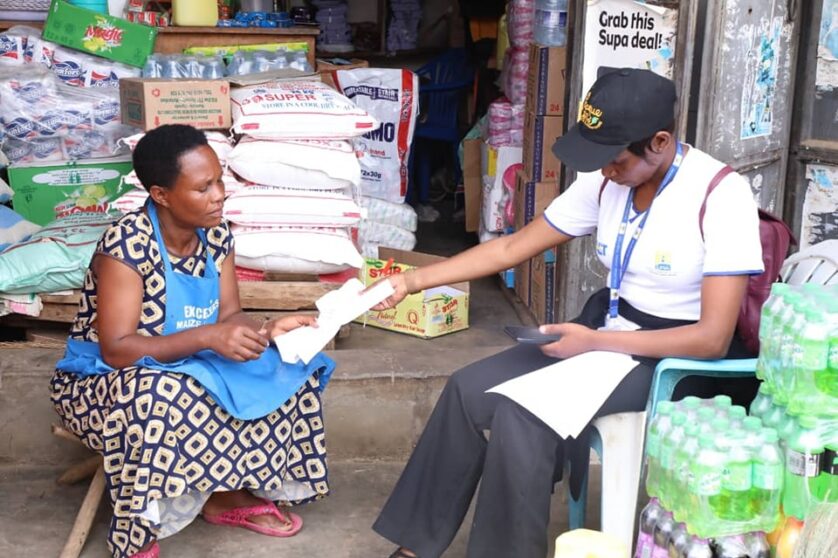Politicians have many bad tax habits. These include using tax inspections to punish political opponents; ensuring that their friends and supporters are taxed lightly; and making tax law complex to disguise the ways in which it privileges the rich and powerful.
Researchers can do little to discourage the worst of these very bad habits. But we can help politicians break a lower profile but nevertheless damaging tax habit: a bias, amounting sometimes to an obsession, with registering far too many nominal ‘taxpayers’ who will not in practice pay tax.
The registration obsession
We have strong evidence that many tax authorities, especially in low income countries, register far too many ‘taxpayers’. They waste their own organisational resources and harass far too many small businesses, who have to go through a bureaucratic process that will lead nowhere.
In extreme cases, tax authorities send teams of people into the streets, urban block by urban block, to try instantly to register anyone who might plausibly be eligible to pay some kind of tax. Recent ICTD research in Sierra Leone suggests that the outcomes of these block registration campaigns are as one would expect: the great majority of people captured for registration are highly visible small scale retailers rather than businesses with real tax potential; and the data collected on them in the street is unreliable, mostly requiring extensive verification to be useable.
There are also other ways in which tax authorities register new ‘taxpayers’ en masse without increasing their actual collection capacity. One African tax authority recently bloated its tax register by downloading directly into it the details of all the accounts of the electricity and water utilities. Other tax authorities pay their staff bonuses for each new ‘taxpayer’ registered, regardless of whether that ‘taxpayer’ later ever files any tax returns or pays any tax.
Misguided motivations
It is easier to counter this registration obsession once we know what motivates it. There seem to be two strong drivers. One is a misleading but deeply embedded perception that in lower income countries there is enormous potential to raise additional revenue from the allegedly under-taxed or un-taxed ‘informal sector’. This is misleading on every count: people and enterprises in the informal sector often pay a considerable amount of tax, and the potential to raise more from the mass of poorer people is very limited. These myths about tax and the informal sector need to be exposed and demolished.
But deeply entrenched world views are not easily dismantled. The other driver of the registration obsession may be more immediately susceptible to evidence and argument. A wide range of people in the tax business have promoted or accepted the misleading idea that the annual number of new ‘taxpayer’ registrations is a valid and useful indicator of the performance of tax administrations. That claim does superficially sound plausible. Surely more revenue will follow from identifying and registering more potential taxpayers?
In practice it may not, especially when tax registers are already over-stuffed with nominal ‘taxpayers’ who are either not submitting tax returns, submitting tax returns showing no liabilities that are never audited, and not actually remitting any tax. In those circumstances, more registrations means more unproductive ‘taxpayers’.
A convenient, but detrimental performance indicator
Why then the widespread use of new registrations as a performance indicator? The answer is that it is convenient for several of the parties involved. Politicians in power can point to the numbers and claim that they are successfully dealing with the revenue problem. Aid and development agencies have often been – and still are – complicit in agreeing that the number of new registrations is a valid performance indicator for externally-funded revenue projects. They are in effect ticking their own performance evaluation boxes. The people who manage tax administrations generally like to be assessed on their registration achievements. It is generally easier to boost that number than to actually raise more revenue. If ordinary tax collectors are paid bonuses for achieving new registrations, they too become parties to the charade.
Change is most likely to come from above. We need to persuade politicians that the number of new tax registrations is not a useful measure of the performance of their tax administrations. We need other performance indicators, in addition to meeting revenue collection targets, that are both useful from the perspective of improving the revenue system in the long term and meet politicians’ need for achievable numerical targets. Recent events in Sri Lanka suggest one way forward.
The case of Sri Lanka
In early 2022, Sri Lanka descended into a deep public debt and economic crisis. Its revenue collections were – and are – abysmally low. It is entering into an IMF agreement that, among other things, mandates large, quick increases in tax collections. In September 2022, while still negotiating with the IMF, the President declared that, within a short period of time, he would ensure that every adult aged 18 years or over would be registered for tax. If implemented, that would represent a thirty-fold increase in the size of the tax register.
In Sri Lanka as in many other countries, a high proportion of the businesses and people already on the tax register were not submitting tax returns or actually remitting any tax. At the same time, we know that a large number of businesses and people who should pay tax are not on the register.
In February 2023, the Verite think tank in Colombo produced a policy note authored by myself and Dr Nishan de Mel suggesting a better way forward. We pointed out the problems with the President’s proposal and suggested that the government focus instead on registering (and obtaining tax returns from) four broad categories of potentially significant taxpayers:
- People or businesses paying significant amounts of Withholding Tax, that is mostly collected by automatic deductions from interest on bank accounts.
- Highly paid public servants.
- All individual professionals and businesses that are registered with or licenced by a government agency or a recognised professional association. These include for example medical professionals, accountants, and lawyers.
- People who both pay income tax under the PAYE (pay-as-you-earn) scheme and pay significant amounts of Withholding Tax.
The Sri Lankan Finance Ministry did not adopt our recommendations in their original form. The Gazette Notification issued on 31 May 2023 specified 14 categories of people who need to register for tax immediately. In practice, that list overlaps a great deal with ours. But the government have made useful additions, including people who (a) have vehicles registered with the Department of Motor Traffic (b) have formally acquired immoveable property since 2018 or (c) obtain approval for a building plan from a local government.
The Government of Sri Lanka has not formally withdrawn the proposal to register all adults for tax. It has however pushed it into the background and is now focusing on the more constructive mission of registering people who are likely to generate significant revenues. We will begin to feel that the strategy is working if the next annual performance report of Inland Revenue Department lists the numbers of new taxpayers registered according to each of these 14 categories. We will know that it is working when the President begins to quote those numbers in his speeches.
In the meantime, it is important for policy makers to heed the evidence that mass tax registration campaigns do not work and abandon using the number of new taxpayers registered as a key performance indicator for tax administrations. Read our new policy brief to see the three key ways we need to rethink registration to be more effective and equitable.



